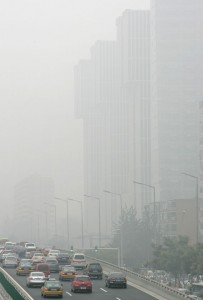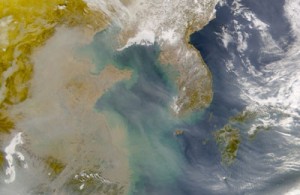 Climate change negotiations are the ultimate test of international cooperation. Participating members range all across the economic spectrum, from poor, undeveloped island countries to super powers like the United States and everything in between. In some cases, literally the only thing negotiating members have in common is the fear of the consequences presented by climate change.
Climate change negotiations are the ultimate test of international cooperation. Participating members range all across the economic spectrum, from poor, undeveloped island countries to super powers like the United States and everything in between. In some cases, literally the only thing negotiating members have in common is the fear of the consequences presented by climate change.
Since the developing countries are or will soon become some of the largest emitters in the world, their participation is vital to the success of climate change adaptation plans. However, developing countries like China and India will not commit to environmental restrictions that do not allow them to continue developing and competing in the global economy, particularly not before wealthier countries demonstrate their commitment to seeing the job through.
Even with the efforts undertaken by the EU, until the US proves that it is willing to commit to large changes and take on the same emission (and economic) restrictions as the rest of the world, limiting their economies would put developing countries even farther back in an economic race they are already struggling to maintain. Therefore, it seems unlikely that India, China, and other developing nations will change their stance or make further commitments in Copenhagen. The US is going to have to make its move first, to demonstrate its determination to meet the emission goals set by the UN and convince developing nations to make their own commitments at the next international conference.
Countries to watch:
India refuses to commit to any emission cutbacks before the United States, prioritizing an improved standard of living for its people over limiting its carbon footprint. India’s Environment Minister, Jairam Ramesh, states that there is “no way” India will be committing to any binding emission limits in 2009. However, the country faces a predicted 20% increase in rainfall during their monsoon season, and intense droughts that will threaten their fresh water supply and agricultural productivity.
Video: How Climate Change is affecting Indian Monsoons
China is also resistant to the proposed emission reductions (back to 1990 emission levels by 2050). Since their economy has grown exponentially in a very short time, returning to their emission levels of 1990 would make continued development next to impossible. However China already has some of the worst air pollution on the planet, and although their per capita emissions are relatively low, its enormous population makes China one of the highest overall emitters in the world.
Likewise, Russia says they will refuse to ratify any policy that imposes restrictions on them but not on the US or China. “Should we restrain our development because of them?” noted Prime Minister Vladimir Putin. Since Russia stands to see an increase in water supply and growing season, they are poised to weather climate change much better than many of their neighbors. However they are likely to see a big jump in immigration as the permafrost of Sibera melts and becomes more habitable.
Can all these conditions be met in Copenhagen? Unlikely. There is such a huge variety of circumstances that different countries are demanding that it is all but impossible for one two-week conference to devise a plan to meet them all. It may be that they best politicians can do is get the US to commit to emission cutbacks and cross their fingers that at the next conference, developing countries will be willing to follow the lead of the world’s economic superpowers, the EU and the US.
Developing countries are facing some of the most severe consequences of climate change. They’ve heard the reports and they know the upcoming challenges. The major obstacle is their distrust of the United States. If that obstacle can be overcome at Copenhagen, hopefully logic or simply fear of the consequences of climate change will propel these countries to commit to environmental measures of their own.
Tags: China, climate change, India

